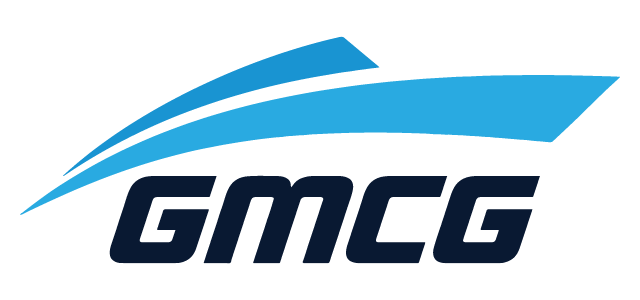Safe breakthrough for ship recycling
The news that India has finally ratified the IMO’s Hong Kong International Convention for Safe & Environmentally Sound Recycling of Ships (2009) is a real breakthrough in this sensitive maritime industry. India is one of the world leaders in ship breaking and recycling along with Bangladesh, China, Pakistan and Turkey – four countries that have as yet, to accede to the treaty – they account for more than 98% of all global ship breaking and recycling.
The Convention and the EU Ship Recycling Regulation (1257/2013) aim to reduce the negative impacts linked to the recycling of EU-flagged ships, especially in South Asia. The EU Regulation was built upon the Hong Kong Convention and aims to implement the Convention quickly, without waiting for its ratification and entry into force. To speed up the formal entry into force of the Hong Kong Convention, the Commission proposal for a Ship Recycling Regulation was accompanied by a draft decision requiring Member States to ratify the Hong Kong Convention. In ship recycling this is a common cause and both the IMO and EU are at one in striving for greater workforce and environmental protections in this industry. The new regulations have also been welcomed by the International Chamber of Shipping.
The Ship Recycling Regulation applies to large commercial seagoing vessels flying the flag of the EU Member State, and to ships flying the flag of a third country calling at EU ports or anchorages. In order to ensure legal clarity and avoid administrative burdens, ships flying the flag of a Member State covered by the new legislation would be excluded from the scope of the Waste Shipment Regulation (EC) 1013/2006. The IMO treaty will enter into force 24 months after three separate criteria have been met. It must be ratified by15 States – but these states must represent 40% of world merchant shipping by gross tonnage, and a combined maximum annual ship recycling volume (during the preceding 10 years) of not less than 3% of their combined gross tonnage.
According to the new rules, the installation or use of certain hazardous materials on ships such as asbestos, ozone-depleting substances, PCBs, PFOS, and anti-fouling compounds, will be prohibited or restricted. Each new ship flying the flag of an EU Member State (or a ship flying a flag of the third country calling at EU port or anchorage) will be required to have on board an inventory of hazardous materials.
This has not been an easy part of the maritime industry to police and the pressures on ship recycling countries has increased in the past decade thanks to the continuing pressures from regulators and the powerful global environmental lobbies. India, one of the world’s largest ship breaking nations, has become the 15th state to accede to the Hong Kong Convention and according to recent reports in 2018 the country received more than 250 vessels of almost five million gross tonnes which amounted to around 25-35% of the world’s recycling tonnage. This means that India’s ratification of the convention is a significant step in the drive to clean up an industry that still has its challenges and concerns for the global environment. Although there are 15 sovereign states already signed to the Convention, further tonnage and recycling volumes are still needed before it can come into force and with India onboard this will certainly add weight to the IMO’s quest for safer recycling operations globally and put pressure on other major recycling nations.
The real issue in ship recycling is about the health and safety of the workforce and also the environmental concerns surrounding the removal and disposal of hazardous materials during these processes. It is a labour intensive industry and for many communities in the Asian sub-continent it is a vital source of work and income. But ship owners do understand that safe and environmentally sound ship recycling makes good business sense: they are not unaware of the reputational damage of having their ships involved in accidents or causing pollution and the resultant media scrutiny. The welfare of those workers involved in ship recycling is as much in the minds of the recyclers and ship owners as it is in those environmental lobby groups pushing for more regulation.
The Hong Kong Convention (HKC) seeks to set the global standards for safe and environmentally sound ship recycling: this has been one of the main concerns of the lobbyists in this sector with claims of lack of proper equipment to safely dismantle ships at the end of their life and handle the potentially hazardous materials on board them. This has been deal with under the HKC as any ships sent for recycling are now required to carry an inventory of all hazardous materials on board. It also means that ship recycling facilities have to provide a ‘Ship Recycling Plan’ which specifies how each vessel will be recycled, based on its particular characteristics and its inventory of hazardous materials.
In welcoming India’s support for the Hong Kong Convention, IMO Secretary-General Lim took the opportunity to welcome India and push for more support from those states still outside the convention. “What happens to ships at the end of their lifetime is an important global issue, with major consequences for safety and the environment,” said Lim. “I urge all countries yet to do so, to ratify this important convention so it can enter into force and provide a consistent, global regulatory regime for this vital industry.”
There is no doubt that cleaning up the industry will pay dividends not only for ship recyclers, but also those directly involved in the ship breaking activities. The race to eradicate the dangerous practice of breaking ships simply beached onto the shores of Asian countries is ongoing but progress is definitely being made. Now ship recycling facilities will need to obtain authorization to operate with authorized yards the only ones permitted to import ships for recycling. There will have to be Ship Recycling Plans prepared for incoming vessels and those ships will need to obtain a “Ready for Recycling Certificate” in accordance with the HKC.
The maritime sector is well aware of its environmental responsibilities and the ratification of the HKC will propel the ship recycling industry into calmer waters and work for both the ship owners and shipbreaking personnel.


